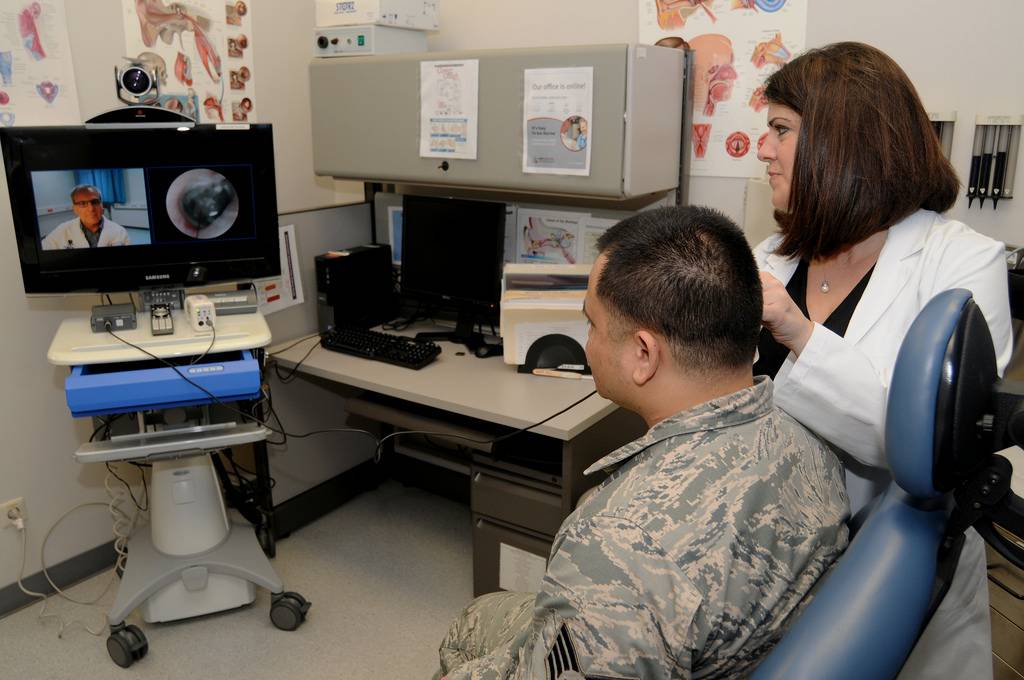
Happy Veteran's Day! Thank you to those who have and are serving our country.
Today Vice President Mike Pence gave a speech at Arlington National Cemetery in honor of America's Vets and one line caught my ear: "And because not all wounds of war are visible, we've improved Veteran's access to urgent mental health care services and given greater access to telemedicine..."
What? Did a public official just use the word telemedicine on national TV? I am sure that it passed right by most people. But to those of us who are trying to improve access to needed medical care while helping to tamp down our out of control health care costs, this sentence was priceless. Many if not the majority of health care consumers either have no knowledge or just a passing knowledge of what telemedicine even means.
To cover the basics for those that are unsure of what Mike Pence was referring to, telemedicine (also sometimes called by a somewhat broader term - telehealth), while not having a standard definition, is generally accepted to mean using electronic communications to exchange medical information from one site to another for the purposes of evaluation, diagnosis, and treatment of patients with the goal of improving patients' health.
In many cases the application of telemedicine is designed to allow for improved access to care particularly for those who struggle to get the care they need in a timely manner. Wait times to get into doctors appointments can be days to weeks to months away. In which time, some get physically or mentally worse and either have to or opt to visit the much more expensive and less personalized care option -- the emergency room.
So what was Mike Pence referring to when he talked about greater access to telemedicine? He was referring to the passing of the Veterans E-Health and Telemedicine Support(VETS) Act of 2017. This act unanimously passed through the House of Representatives in order to improve veteran's access to care by allowing VA health care providers to practice across state lines via telemedicine modalities. As part of VA Secretary David Shulkin's push to get this legislation passed, even Donald Trump was able to witness a live demonstration telemedicine evaluation conducted by VA doctors with a veteran patient.
You see, each state requires physicians to apply and pay for a license in each and every state that they want to practice in. While this may have been fine when most physicians had a local practice and had little need to get more than a state license or two. Now with the advancement of technology and communications, it is possible to practice medicine across all fifty states and even the world.
The Veteran's Administration has actually been a bit ahead of the private health care sector when it comes to this set-up. The VA does allow providers with a license in one state to practice in another, but this only applies to VA patients and it only applies to in-person evaluations. This VETS Act of 2017 expands that cross-state capability to include telemedicine.
This improved access to care is great news in particular for veterans located in rural areas of the country, but is also particularly hopeful for mental health evaluations country-wide. A few studies, including the Telemedicine Outreach for PTSD(TOP) study, have shown that evaluation and treatment for PTSD via telemedicine is just as effective as in-person therapy. With PTSD alone being significantly associated with suicidal thoughts or attempts, we should be able to help improve the lives of many veterans and decrease the veteran suicide rate along the way. The suicide rate by VA patients is double the rate of suicide in the US in general. Having an easier way to engage in therapy for PTSD and other mental health issues through telemedicine could literally be a life-saver.
The advantages spread far beyond PTSD and will allow for quicker response to medical issues from infections to diabetes to cancer. The VA seems to be catching up with the modern world and making advances in technology and treatment modalities. Now we just need the Medicare system to get the hint and realize that an appropriately applied telemedicine program is good for patients and good for the health system in general. The second introduction of the CONNECT for Health Act in May of 2017, which would expand the use of telehealth among the Medicare population, does not appear to have budged anywhere since then and has been referred to the Committee on Finance. Come on White House, we could all use a little more help with health care access and cost containment.
Care On.